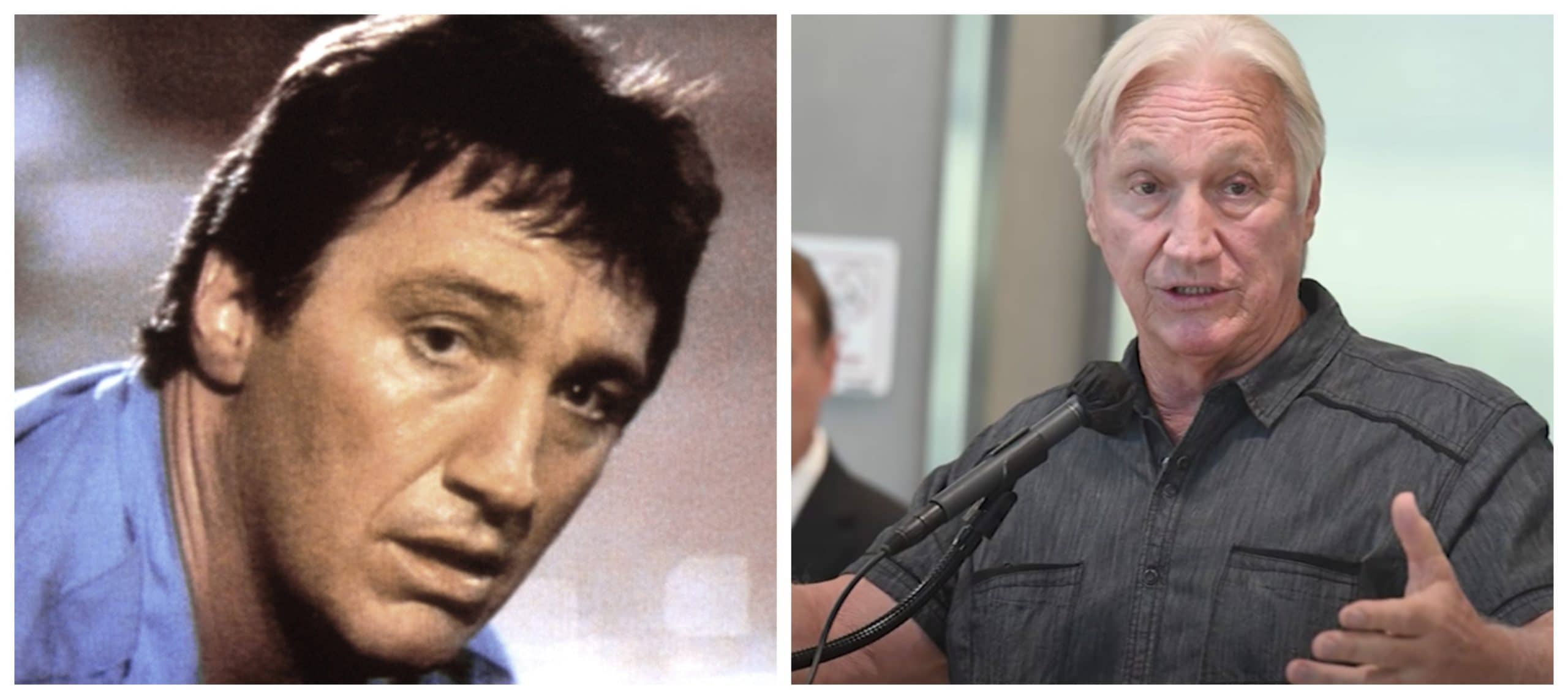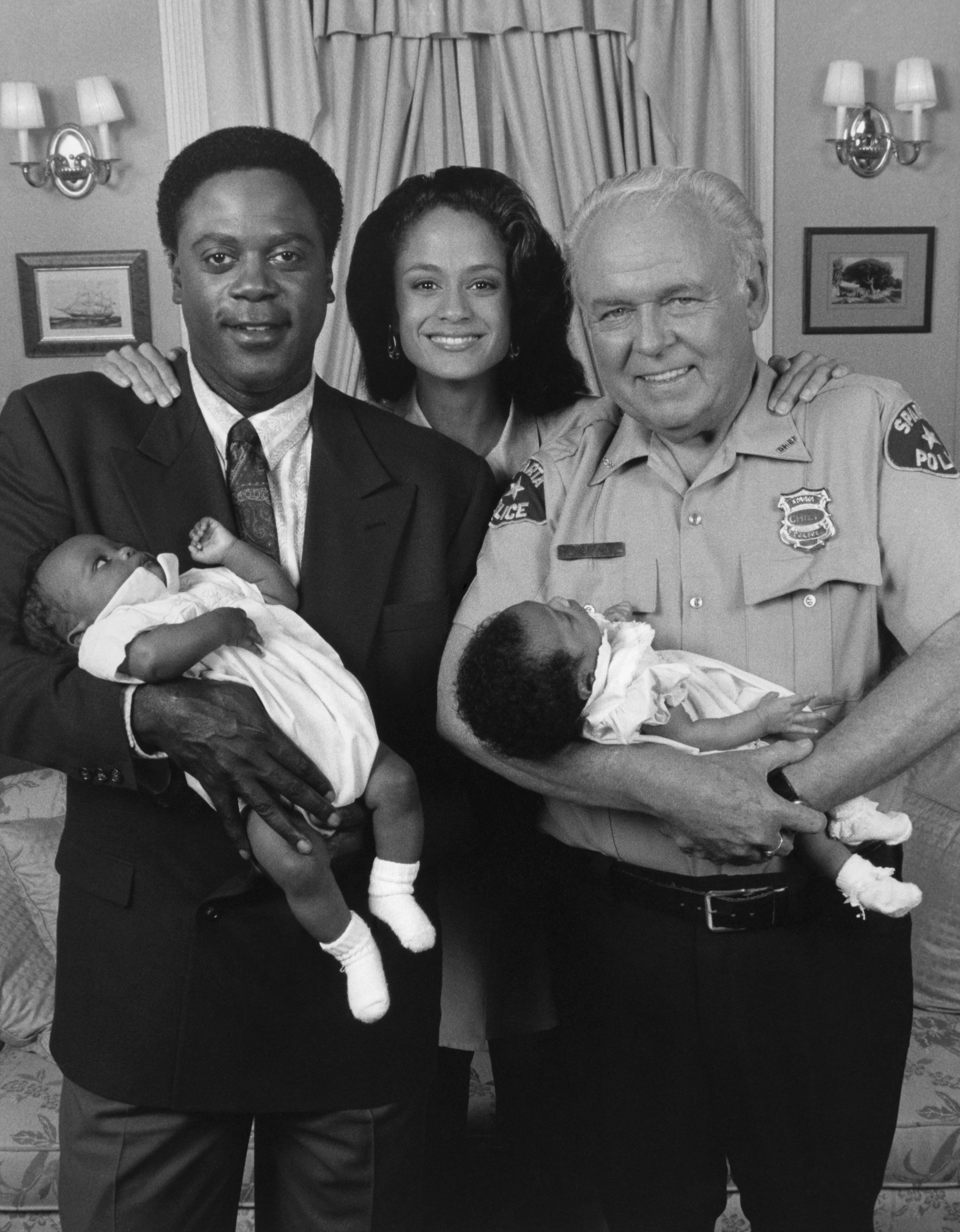Unveiling the Stellar Cast of "In the Heat of the Night": A Journey into Cinematic Excellence
The iconic film "In the Heat of the Night" captivated audiences with its gripping storyline and unforgettable characters. The movie's success was largely due to its stellar cast, who brought the characters to life with their exceptional performances.
The ensemble cast of "In the Heat of the Night" included:
- Sidney Poitier as Virgil Tibbs
- Rod Steiger as Bill Gillespie
- Warren Oates as Sam Wood
- Lee Grant as Mrs. Leslie Colbert
- Geraldine Page as Belle Rosen
The supporting cast also played a vital role in the film's success. Warren Oates' Sam Wood provided comic relief, while Lee Grant's Mrs. Leslie Colbert added a touch of Southern charm. Geraldine Page's Belle Rosen was a memorable character, representing the town's unspoken prejudices.
The cast of "In the Heat of the Night" worked together seamlessly, creating a film that is both entertaining and thought-provoking. Their performances have left a lasting legacy in cinema, and the film remains a classic to this day.
in the heat of the night cast
Introduction: Highlighting the importance of the key aspects.Key Aspects: List key aspects with brief descriptions.Discussion: Detailed discussion on the key aspects, through examples, connections, or linkage to the main topic.Explore the connection between "{point}" and "in the heat of the night cast" for content details list. Never use first and second-person pronouns and AI-style formalities.in the heat of the night cast
The 1967 American neo-noir mystery film "In the Heat of the Night" features an ensemble cast that brings the characters to life with their exceptional performances. The film's success can be attributed to the cast's dedication to their roles, creating a cohesive and dynamic ensemble.
- Sidney Poitier as Virgil Tibbs: A dignified and commanding African American police detective.
- Rod Steiger as Bill Gillespie: A complex and flawed Southern police chief.
- Warren Oates as Sam Wood: Gillespie's deputy, providing comic relief.
- Lee Grant as Mrs. Leslie Colbert: A Southern belle representing the town's prejudices.
- Geraldine Page as Belle Rosen: A Jewish widow who befriends Tibbs.
The cast worked together seamlessly, creating a film that is both entertaining and thought-provoking. Their performances have left a lasting legacy in cinema, and the film remains a classic to this day.
Sidney Poitier as Virgil Tibbs
The casting of Sidney Poitier as Virgil Tibbs was a groundbreaking moment in the history of American cinema. It marked the first time that a black actor had played a leading role in a major Hollywood film.
- A Dignified and Commanding Presence:
Poitier's portrayal of Tibbs subverted stereotypes and presented a complex and nuanced character. Tibbs was a highly intelligent and capable detective, who refused to be defined by his race.
- A Symbol of Racial Progress:
The casting of Poitier in this role sent a powerful message about racial equality. It showed that black actors were capable of playing leading roles and that black characters could be complex and multi-dimensional.
- A Bridge Between Cultures:
Tibbs' character served as a bridge between the black and white communities in the film. He was able to understand and relate to both sides, and he ultimately helped to solve the crime and bring the community together.
Sidney Poitier's performance as Virgil Tibbs was a landmark moment in cinema. It helped to break down racial barriers and paved the way for greater representation of black actors in Hollywood.
Rod Steiger as Bill Gillespie
Rod Steiger's portrayal of Bill Gillespie is one of the most iconic performances in the history of American cinema. Gillespie is a complex and flawed character, a man who is both racist and yet capable of great compassion.
- A Man of Contradictions:
Gillespie is a walking contradiction. He is a racist who initially refuses to believe that Virgil Tibbs, a black detective, could possibly be competent. Yet, as the film progresses, Gillespie comes to respect Tibbs and even begins to see him as a friend.
- A Product of His Environment:
Gillespie's racism is a product of his upbringing in the Deep South. He has been taught to believe that black people are inferior to white people. However, Gillespie is also a fair-minded man, and he is willing to change his views when he is presented with evidence to the contrary.
- A Symbol of Redemption:
Gillespie's character arc is one of redemption. He starts out as a racist, but he ends up becoming a better man. This transformation is due in large part to his relationship with Tibbs. Tibbs shows Gillespie that black people are just as capable as white people, and he helps Gillespie to see the error of his ways.
Rod Steiger's performance as Bill Gillespie is a master class in acting. He creates a character who is both believable and sympathetic, even though he is deeply flawed. Gillespie is a reminder that even the most prejudiced people can change, and that redemption is always possible.
Warren Oates as Sam Wood
Warren Oates' portrayal of Sam Wood is a key element of the film's success. Wood is the comic relief character, but he is also much more than that. He is Gillespie's loyal deputy, and he provides a much-needed dose of humanity to the film.
Wood is a good-natured and likeable character, but he is also flawed. He is often clumsy and forgetful, and he is not always the sharpest tool in the shed. However, his heart is always in the right place, and he is always willing to help out his friends.
Wood's relationship with Gillespie is one of the most touching in the film. Gillespie is a complex and often difficult man, but Wood is always there for him. He provides Gillespie with support and friendship, and he helps him to see the lighter side of life.
Oates' performance as Wood is spot-on. He creates a character who is both funny and heartwarming. Wood is a reminder that even in the darkest of times, there is always room for laughter.
The inclusion of Wood as a character in the film is a masterstroke. He provides comic relief, but he also adds depth and humanity to the film. Wood is a reminder that even the most serious of films can benefit from a touch of humor.
Lee Grant as Mrs. Leslie Colbert
Lee Grant's portrayal of Mrs. Leslie Colbert is a powerful and nuanced performance that brings to life the character's complex inner world. Mrs. Colbert is a Southern belle who represents the town's deep-seated prejudices, but she is also a woman with a kind heart and a longing for connection.
- A Woman of Contradictions:
Mrs. Colbert is a mass of contradictions. She is a devout Christian who believes in the equality of all people, but she also holds racist views that have been ingrained in her since childhood. She is a kind and compassionate woman, but she is also capable of great cruelty.
- A Product of Her Environment:
Mrs. Colbert's prejudices are a product of her upbringing in the Deep South. She has been taught to believe that black people are inferior to white people, and she has never questioned these beliefs. However, as the film progresses, Mrs. Colbert begins to see the error of her ways. She comes to realize that black people are just as capable as white people, and she begins to question the racist beliefs that she has held for so long.
- A Symbol of Hope:
Mrs. Colbert's character arc is one of hope. She starts out as a racist, but she ends up becoming a better person. This transformation is due in large part to her relationship with Virgil Tibbs. Tibbs shows Mrs. Colbert that black people are just as capable as white people, and he helps her to see the error of her ways.
Lee Grant's performance as Mrs. Leslie Colbert is a powerful reminder that even the most prejudiced people can change. Mrs. Colbert is a complex and flawed character, but she is also a woman with a good heart. She is a reminder that we should never give up on people, even when they hold views that we find abhorrent.
Geraldine Page as Belle Rosen
Geraldine Page's portrayal of Belle Rosen in the film "In the Heat of the Night" is a significant and multifaceted character that adds depth and nuance to the film's exploration of racial tensions and social injustice. Belle Rosen's relationship with Virgil Tibbs, an African American police detective, serves as a powerful symbol of hope and understanding amidst the racial divide.
Belle Rosen, a Jewish widow, initially appears to be an unlikely ally for Tibbs. However, as the film progresses, their shared experiences of prejudice and discrimination forge an unbreakable bond between them. Belle's empathy and compassion for Tibbs stem from her own experiences as an outsider in the small Southern town where the film is set. She understands the pain of being marginalized and treated as an inferior.
The friendship between Belle and Tibbs challenges the prevailing racial stereotypes and prejudices of the time. It demonstrates that people from different backgrounds can find common ground and work together to overcome adversity. Belle's unwavering support for Tibbs, even when it puts her own reputation at risk, is a powerful testament to her strength and courage.
In conclusion, Geraldine Page's portrayal of Belle Rosen in "In the Heat of the Night" is a crucial component of the film's success. Her character serves as a beacon of hope and understanding, reminding us that even in the darkest of times, human connection and empathy can prevail over prejudice and division.
Frequently Asked Questions about "In the Heat of the Night" Cast
This section addresses frequently asked questions and provides informative answers regarding the cast of the film "In the Heat of the Night".
Question 1: Who played the lead role of Virgil Tibbs in "In the Heat of the Night"?
Answer: Sidney Poitier portrayed the character of Virgil Tibbs, an African American police detective who travels to a small Mississippi town to investigate a murder.
Question 2: What was the significance of Belle Rosen's character in the film?
Answer: Geraldine Page played the role of Belle Rosen, a Jewish widow who befriends Tibbs. Her character serves as a symbol of hope and understanding, demonstrating that people from different backgrounds can overcome prejudice and work together.
In conclusion, the cast of "In the Heat of the Night" played a vital role in the film's success. Their powerful performances brought depth and nuance to the characters, exploring themes of racial tension and social injustice. The film remains a classic and a testament to the transformative power of cinema.
Conclusion
In conclusion, the cast of "In the Heat of the Night" played a vital role in the film's success. Their powerful performances brought depth and nuance to the characters, exploring themes of racial tension and social injustice. The film remains a classic and a testament to the transformative power of cinema.
The film's enduring legacy lies in its ability to challenge societal norms and promote understanding. The cast's portrayal of complex and multifaceted characters highlights the importance of empathy, compassion, and the fight against prejudice. "In the Heat of the Night" continues to resonate with audiences today, reminding us that meaningful change and reconciliation are possible through human connection and collective action.
- Chadwick Bosemans Enduring Legacy Kids Remember The Late Star
- Rosa Wolff Toto Life Legacy And Philosophy


